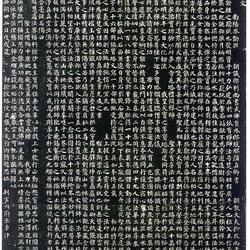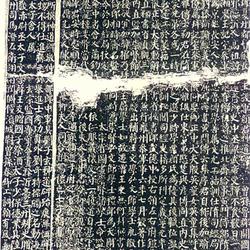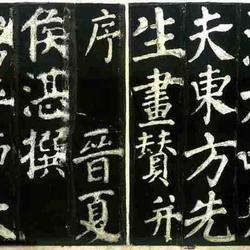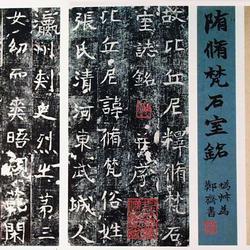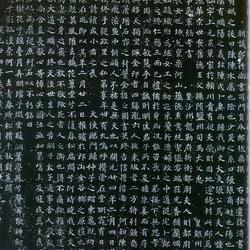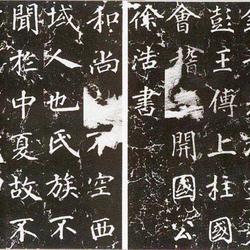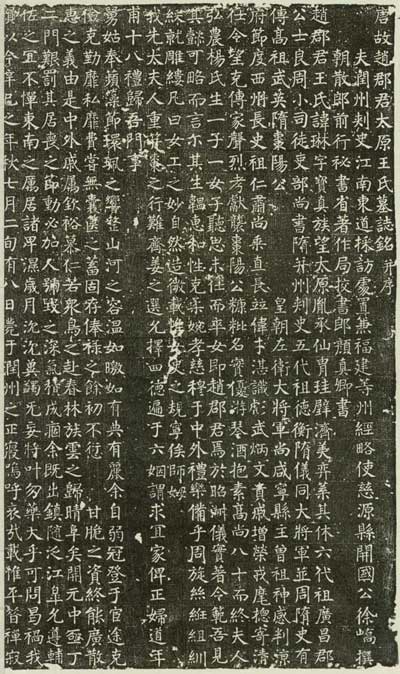
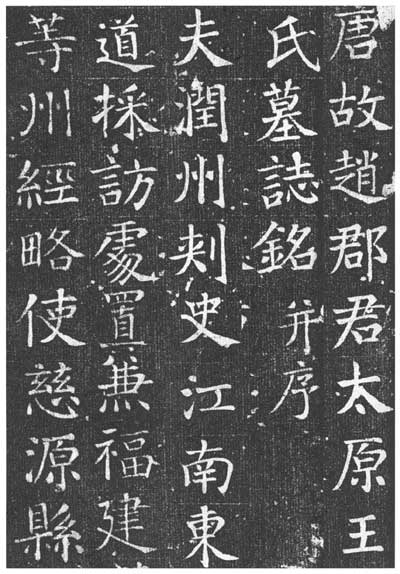
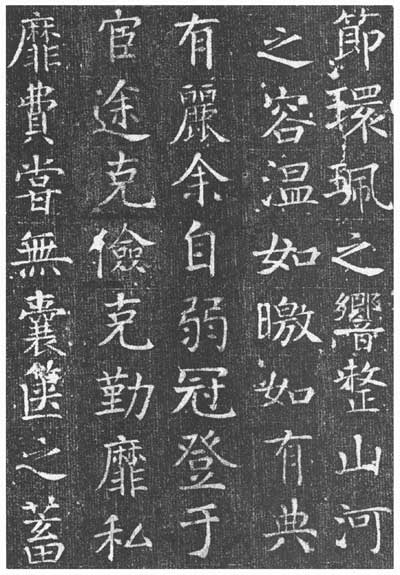
Yan Zhenqing's works have been handed down from generation to generation, and those discussed by scholars over thousands of years were all written after his middle age. The Tang Dynasty "Guo Xuji Epitaph" unearthed in Yanshi in 1997 was written by Yan Zhenqing in the first year of Tianbao (750), when he was 43 years old. The publication of the epitaph rubbings excited the book world and is known as Yan's earliest work.
In the autumn of 2003, "Wang Lin's Epitaph" of the Tang Dynasty, written by Yan Zhenqing in the 29th year of Kaiyuan (741), was unearthed in Zhanggou Village, Longmen Town, Luoyang. The full name of the annals is "The Epitaph of Wang's Family in Taiyuan, the Prince of Zhao County in the Tang Dynasty and the Preface". It is made of limestone and is 90 centimeters long and 90.5 centimeters wide. The four sides are engraved with cloud patterns, but the lower side has the numbers "The Twenty-Nine Years of Kaiyuan". The full text of the journal is 32 lines, with 32 characters in the entire line, and has shallow borders.
The author is Xu Qiao, husband of the Wang family, and Xu Qiao has two biographies in "Tang Shu". He was promoted to "the governor of Runzhou, the interviewer and manager of Jiangnan East Road, the economic envoy of Fujian and other states, and the founding father of Ciyuan County". He once "wrote 30 volumes of Yi Guangyi, 100 articles on Lei Erdai Li, and 30 volumes of collected works." The Epitaph of Huan Chen Fan unearthed in Luoyang in recent years was written by Xu Qiao in the 27th year of Kaiyuan (739).
In the 29th year of Kaiyuan, Wang Lin died in Runzhou. Xu Qiao was heartbroken and commemorated his death personally. The next year, Qiao died. Xu Qiao's literary talent is extraordinary, and Wang Lin's Zhiming written by Wang Lin is extraordinary, and his Zhiwen was written by Yan Zhenqing. At this time, Xu Qiao was in his fifties and Yan was in his thirties, and their positions were not high. Xu Qiao Rang Yan Shudan can be said to have a discerning eye.
During the Tang Dynasty, regular script was particularly popular. During the reign of Emperor Xuanzong, calligraphy was particularly important, and there were numerous talents in the calligraphy world, each leading the way. As for starting a subject to obtain a scholar, calligraphy has become an indispensable one. During the prosperous period of Kaiyuan, Yan Zhenqing was "raised as a Jinshi and a member of the National Academy of Sciences", which proved that he had superhuman literary talent and superb calligraphy. Therefore, he soon became the school secretary. Xu Qiao asked Yan Zhenqing to write Zhiwen, which should be said to be another opportunity for Yan Zhenqing to display his talents. "Wang Lin's Epitaph" allows us to appreciate the charm of Yan Zhenqing's early writings.
The plains resisted adversity, and the Yuan Dynasty faced difficulties. Yan Zhenqing's integrity can be expressed. The calligraphy is majestic and upright, just like the person he is. As a great master of the generation, his books and tablets stated that "it is a treasure passed down from generation to generation" and will last for a hundred generations.
Since the Tang and Song Dynasties, countless calligraphers have discussed Yan Zhenqing. The chapter "Zhipu" written by Zheng Piao of the Yuan Dynasty says: "Yan Zhenqing has Hong Guangda, and he is the sect of Shutong...", and his chapter "Ancient Studies" says: "Zhenqing's 'Jianchi', Yang Bingzhi's 'lectern', and 'ancestral temple' His works are vivid in both vertical and horizontal directions, without any false embellishments, and his signatures are majestic!" Tao Zongyi of the Ming Dynasty's "History of Calligraphy" says: "...the dots of his calligraphy are like falling stones, his paintings are like summer clouds, his hooks are like bending gold, and his swords are like gold. Like a crossbow... Like a sharp edge that destroys a sword, it frightens and flies away, it is ever-changing and all integrated." Looking at Wang Linzhi now, it should be said that Yan has already emerged in his youth, and his books have shown a unique style. As the years went by, his books gradually became more perfect, until he reached proficiency.

